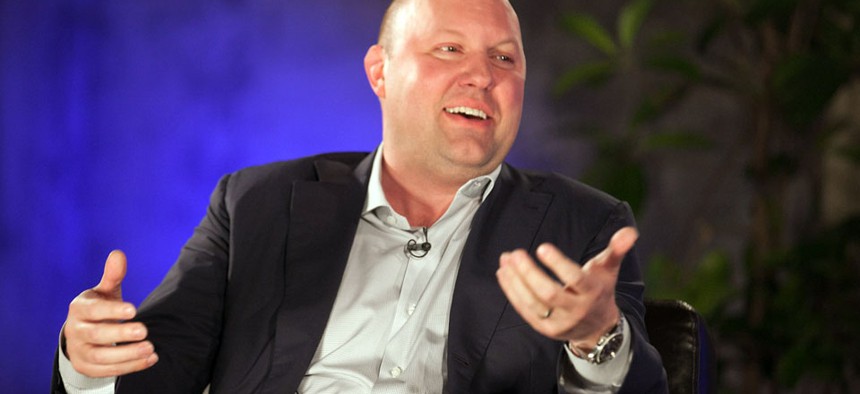This Tech Giant Thinks Silicon Valley’s Diversity Problem is Overstated

Flickr user JD Lasica
He cites that demand for talent is so high, that any logical company will go anywhere to get it.
A series of large tech companies recently revealed disappointing gender and diversity statistics , sparking discussion over whether there’s something fundamentally wrong with hiring practices in Silicon Valley. In an extended interview with New York Magazine’s Kevin Roose, entrepreneur and investor Marc Andreessen tackles that criticism head on. While he thinks the discussion is valid, he has issues with particular points.
“I think the critique that Silicon Valley companies are deliberately, systematically discriminatory is incorrect, and there are two reasons to believe that that’s the case,” Andreessen says. “No. 1, these companies are like the United Nations internally.”
He says that diversity statistics show that around 70% of engineers are white or Asian. That would actually be on the low end. It’s closer to 90% at many large companies:

But he takes issue with calling these companies other than diverse:
Let’s dig into that for a second. First, apparently Asian doesn’t count as diverse. And then “white”: When you actually go in these companies, what you find is it’s American people, but it’s also Russians, and Eastern Europeans, and French, and German, and British. And then there are the Chinese, Japanese, Koreans, Thais, Indonesians, and Vietnamese. All these different countries, all these different cultures. To believe in a systematic pattern of discrimination, you’d have to believe that we’re discriminatory toward certain people without being discriminatory at all toward an extremely broad range of ethnicities and religions. Because of Pakistanis, we’re seeing a higher-than-ever proportion of Muslim employees in a lot of our companies.
The second reason that he cites is that demand for talent is so high, and that any logical company will go anywhere to get it.
He still believes in the meritocratic ideal in Silicon Valley, but agrees that it is compromised in two ways:
One is educational skills development, and the other is access. This is the critique that I think is actually the most interesting, which is, yeah, the meritocracy works if you know the right people, if you have access to the networks. How do venture capitalists make investment decisions? Well, we get referrals based on people we already know. Well, what if you’re somebody who doesn’t already know anybody, right? What if you don’t know the recruiter at Facebook so you can’t get the job? What if you don’t know the venture capitalist so you can’t raise funding? We think access is broadening out the network so that everybody who could contribute can get access to the network. And that’s the one that we’re working on.





